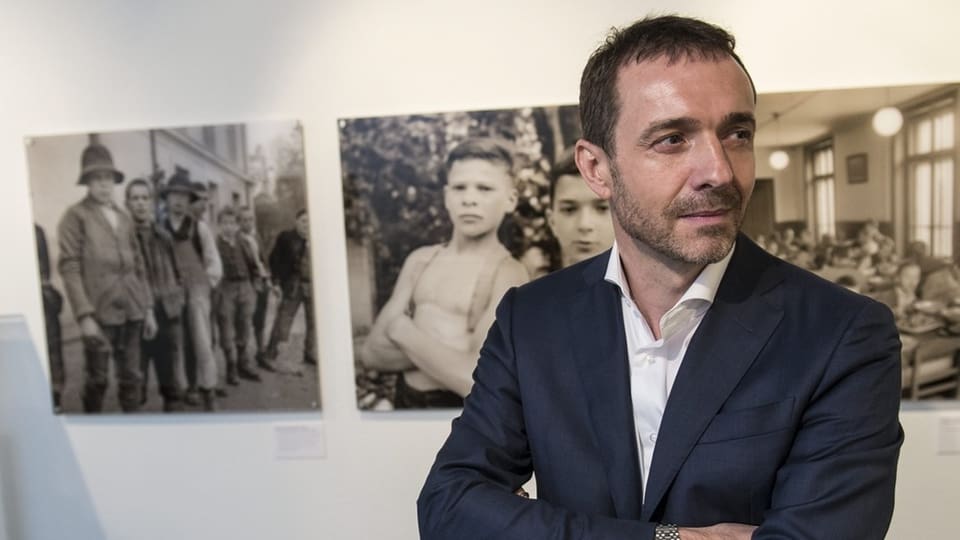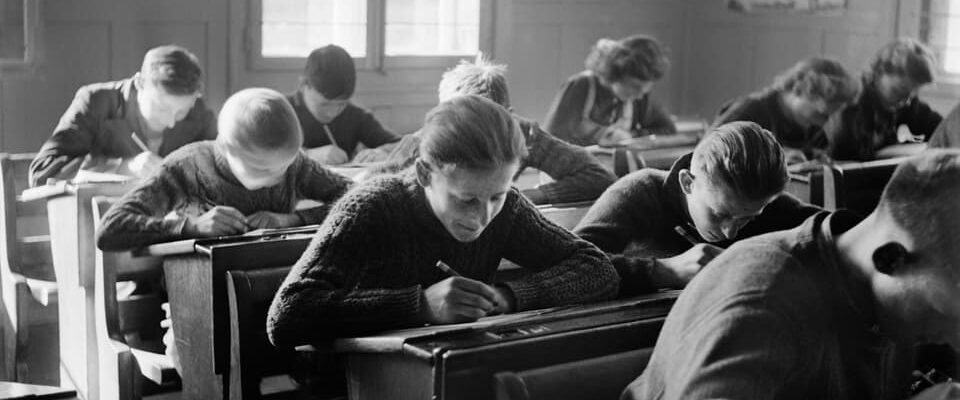Contents
Switzerland has done pioneering work in dealing with welfare-related out-of-home placement and victim compensation.
When Lydia Bucher was 12 years old, she came to live with a farming family. But not because she wanted a child and wanted to take in the half-orphan as a daughter. No, Bucher had to earn a living: “I was a servant and had to work like a grown man,” she says.
Legend:
Recording of a child from 1945: Around 20,000 people in Switzerland fell victim to coercive welfare measures in the last century.
Keystone/PHOTOPRESS ARCHIVE/STR
There was no trace of parental affection: she was insulted and was forbidden to have contact with her own siblings. The farmer also “lent” her to other farmers who sexually abused her.
A “pioneering step” by Switzerland
Lydia Bucher’s fate is bad – but unfortunately not an isolated case. Until 1981, children in foreign placements in Switzerland were used as cheap labor, often mistreated and often sexually exploited.
Anyone who can say that they were in a detention center is automatically a victim.
On the initiative of a former child in care – the current entrepreneur Guido Fluri – Switzerland introduced a solution that is unique in Europe: not only does it recognize the injustice that occurred in a law and examine the events scientifically, it also pays the victims a solidarity contribution upon request 25,000 francs.

Legend:
Successfully launched the reparations initiative in 2014: Guido Fluri.
Keystone/ ALESSANDRO DELLA VALLE
“This is a pioneering step by Switzerland,” says law professor Helen Keller from the University of Zurich. Switzerland has found a simple and unrestricted solution: “Anyone who can say that they were in a detention center is automatically a victim.”
This has the advantage that the victims do not have to take legal action against the state, do not have to prove any damage and do not have to observe any statute of limitations. Victims also do not have to fear that communities, cantons or churches will shift liability to each other.
Money means recognition of suffering
According to Susanne Kuster, who is responsible for the processing law as deputy director of the Federal Department of Justice and Police, there is not a single solution for everyone. “Each state must find its own way of dealing with institutional failure.” However, it is important to include those affected.
The special thing about the Swiss solution is that it is the result of an intensive dialogue at eye level between those affected and the authorities. “The process was not launched and dictated from above, but rather it was those affected who had the courage to do it.” Those affected like Guido Fluri and Lydia Bucher.
The latter is not bitter despite her fate. She is satisfied with what she has achieved in life – despite the difficult starting conditions. She has helped other victims who are less able to cope with administrative matters with their applications for the solidarity contribution. When the money came from the state, many people said to her: “For me, this is like an acquittal.”

